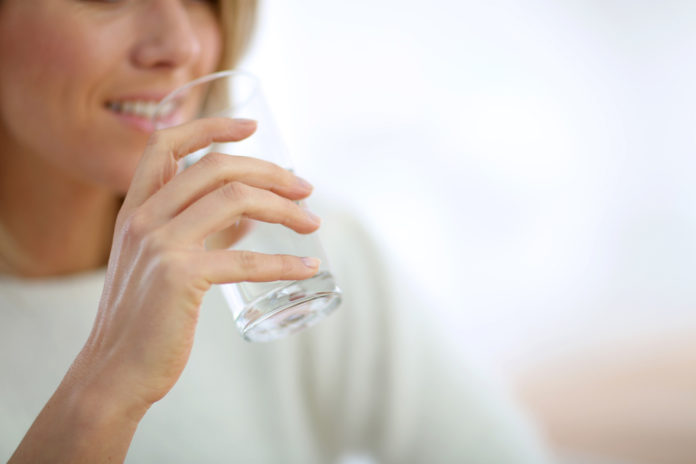When it comes to good health when aging, it is often thought to eat nutritious foods and exercise regularly. However, we must not forget about optimal fluid intake.
In fact, dehydration in seniors is a common problem older adults face. Find out the symptoms and signs of dehydration in the elderly and steps to overcome it.
What Is Dehydration?
The body loses water naturally each day through breathing, sweating, urination, and defecation. When the body loses too much water without proper fluid replacement, dehydration may arise.
The absence of water compromises critical body functions such as blood flow to the heart and other vital organs.
Causes of dehydration in the elderly may include:
- Reduced thirst
- Forgetfulness to drink water
- Extreme vomiting and diarrhea
- Fever and excessive sweating
- Intentionally withholding fluids linked to fear of incontinence
- Side effect of certain medications, including antihypertensives and antidepressants
- Changes in kidney function
Signs & Symptoms of Dehydration in Elderly
Signs and symptoms of dehydration can range from mild to severe.
Mild to Moderate Dehydration
- Thirst with a dry, sticky mouth
- Less frequent trips to the restroom with decreased urine production and output
- Dry skin
- Headaches
- Sleepiness
- Constipation
- Dizziness, lightheadedness, and weakness
- Muscle cramps
Severe Dehydration
- Extreme thirst
- Very dry mouth as well as skin and mucous membranes
- Shriveled skin that will not bounce back when pulled, also known as skin turgor
- Little to no urination
- Darker colored urine than normal with any urine output
- Rapid heartbeat and breathing
- Low blood pressure
- Confusion
- Coma
*If you or a loved one experience any of these signs and symptoms, seek medical attention.
Treating and Preventing Dehydration
Treatment for dehydration mostly depends on the severity of hydration at hand.
Mild dehydration can be reversed with adequate hydration. Severe dehydration in the elderly is a medical emergency and requires care from a healthcare professional.
All-in-all, dehydration is a cause for concern. There are also many complications of dehydration, including:
- Heat injuries, including heat cramps, heat exhaustion, and heatstroke.
- Conditions of the urinary tract. This can include urinary tract infections, kidney stones, and even kidney failure.
- Hypovolemic shock, which occurs when low blood volume causes a drop in blood pressure. This causes a drop in the amount of oxygen in the body and can be fatal.
- Seizures induced by electrolyte imbalances.
Use these steps to lower the risk of dehydration and such harmful consequences. Tips include ways to ensure water intake and offering food-based hydration sources. Targeting the root of dehydration is essential for protection from dangerous complications, too.
Ensure Adequate Water Intake
As a general rule, adults should consume eight cups (eight ounces per cup for a total of 64 ounces). Although drinking the recommended eight cups may seem simple, it is a tougher quest in the senior population.
Seniors are encouraged to drink at least five glasses compared to the standard eight. Fluid needs will also vary based on climate and exercise patterns to stay hydrated.
Seniors can benefit from a constantly filled water bottle and/or bottles strategically placed in convenient locations. If incontinence is feared, consume small amounts of water throughout the day and avoid drinking any fluids before bed.
Offer Hydration Beyond Water
Ice and fresh fruit and vegetables can even count towards fluid intake. If chewing and swallowing issues arise, senior adults should take advantage of soft snacks such as flavored gelatin and applesauce.
Ice cream is an excellent way to obtain fluid and calcium, a mineral critical in the elderly population for bone health.
Target the Root of Dehydration
The risk of dehydration can be reduced by treating the root of the problem. If vomiting resulted in dehydration, eat foods that are better tolerated and may ease the stomach.
Electrolytes may also be lost with excessive vomiting and fluid loss in general. A sports drink may be beneficial related to its electrolyte content.
But Watch Out for Overhydration
Just like too little water, too much of it can likewise pose a problem. This is because too much can still lead to electrolyte imbalances, including hyponatremia (low sodium).
Seniors with a risk of edema, or excess water retention, should watch out for overhydration as well. Edema causes puffiness, swelling, and fluid excess in the limbs, especially within extremities of the hands, legs, and feet.
Edema occurs when water leaving the bloodstream becomes trapped within and in between tissue layers. Decreasing salt intake can help reduce edema, though diuretics are often prescribed to help filter fluid back into the bloodstream. The kidneys then excrete extra water through the urine.
All-in-all, it is important to talk with a doctor to help determine fluid needs. They can further help devise a plan to ensure a safe and proper hydration status is sustained for good health.






